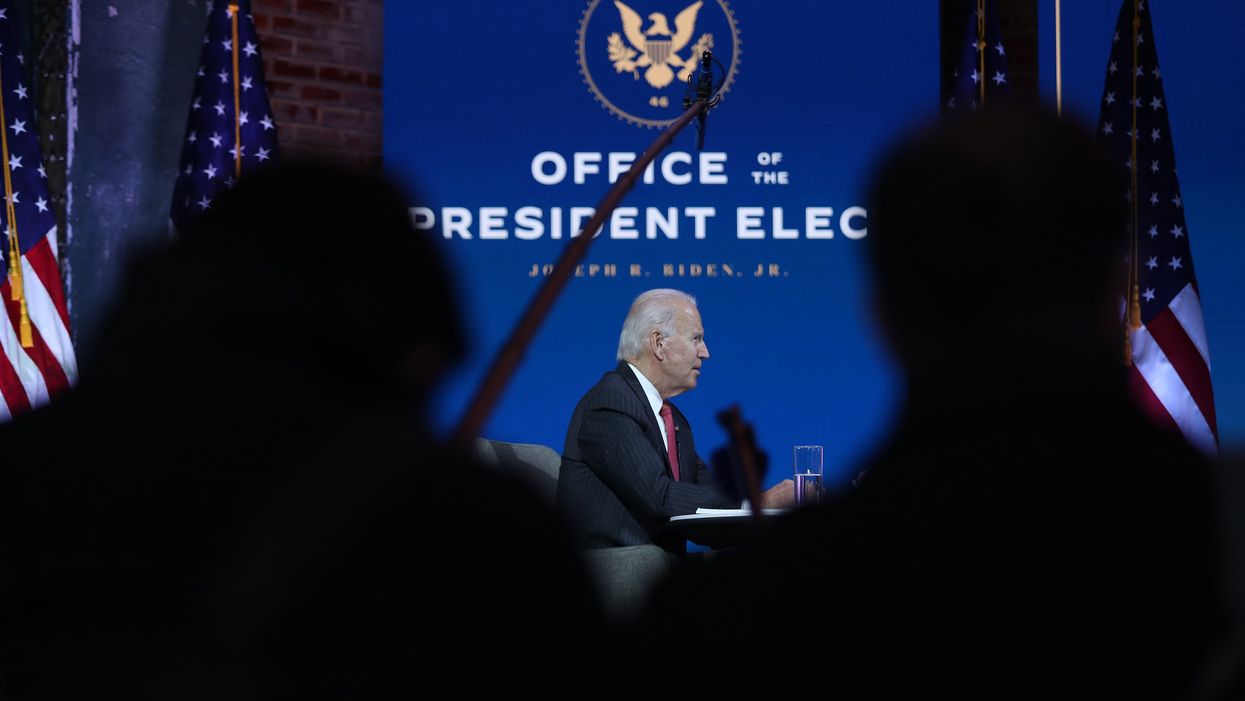McMahon is an adjunct associate professor of applied economics and political science at the University of Vermont and an international democracy and governance consultant.
Many of my fellow Democrats have spent the past three weeks aghast at the reality that more than 73 million of our co-citizens saw fit to vote for the re-election of Donald Trump. "How could they do that?" we ask. After four years of his presidency, there is no longer any question of how manifestly unfit he is to lead this country. How could our fellow Americans have voted for a feral autocrat, a misogynistic racist, a narcissist, a liar and a cheat? The list could continue. What could possibly have motivated them to make such a choice?
Of course we know the answer on one level. His pugnacious personality and anti-establishment schtick strike a chord outside the Beltway, the big cities and the two coasts. And he offers policy pronouncements that sound appealing.
But the full answer lies deeper. It has to do with how threatened people are by change.
Let's take a clue from history. Consider Hitler's accession to power in Germany in the 1930s, the war criminal Slobodan Milosevic's rise toward the presidency of Serbia in the 1980s and the Rwandan genocide of the 1990s. What made so many people in those countries support leaders who sought to eliminate certain sectors of society? What could possibly have motivated them to have undertaken the unspeakable act of exterminating other human beings?
Was it because these people were subhuman, totally amoral individuals? Of course not. They were human beings whose sense of identity was manipulated by demagogues such that they believed that they were facing an existential threat from another group; in the countries above it was the Jews, the Muslims and the Tutsi.
What connection might all this have to our own election? Other autocratic populists use fears of a false or overblown and distorted existential threat to garner popular support, which is what Trump did. These autocrats don't care who the alleged threatening group is; he — and it always has been a he — just has to make his potential constituency feel like there is one.
And, as with other populist autocrats before him, Trump discovered and manipulated a special sauce of resentment based on class and identity. By using that, he succeeded in creating in his target constituency feelings of dependency and subservience, which bypassed fact-based analysis.
These feelings find their basis in the very human phenomenon of existential fears — fueled, for example, by calls from some Democrats to defund the police. Note what the anti-Semites chanted in Charlottesville in 2017: "Jews will not replace us." Apparently those Unite the Right marchers saw this as a question of survival, if not literally on an individual basis then at least in a collective sense.
It is, of course, important for us to recognize that not all Trump supporters go so far as the Proud Boys and their ilk. Many of these supporters would insist they do not harbor such prejudices. And the election results, in which Trump significantly increased his support, including among African Americans, show it's too simplistic to ascribe Trump's appeal as being simply overt racism. It includes a more viral, partly class-based populism, in which Trump plays upon and inflates the grievances of those who believe they are not getting a fair shake out of the system. This includes not only many less- educated and lower-income Americans, but also others who focus on single issues such as abortion or religion. It also includes those who see themselves as the victims of reverse prejudice.
How ironic that Trump has pitched his appeal toward identity-based politics, while the same time heavily critiquing the Democrats' perceived use of it.
So if this dynamic is correct, what can be done? Thankfully the self-correcting mechanism in American democracy is functioning, and Trump will have to leave power. Trumpism won't go away, however.
We can take heart from President-elect Joe Biden's calm and patient approach to the election, and to governing. Calm and patience need to be a hallmark of his administration, as the entire country seeks to salve its wounds and look to the future.
But we must go farther, putting ourselves in the shoes of the Trump supporters and seeing the world through (what are to us) their oddly tinted glasses. We should understand they feel disenfranchised by globalization and its effects, and threatened by the bogeyman of "socialism." We have to recognize they question whether there is a future for them in a non-Trumpian world.
Take the question of America's energy dependence. Four years ago Hillary Clinton foundered when she was seen as calling for an end to dependence on coal, no matter its effects on employment in coal-producing areas. Biden, by contrast, was nuanced on the future of fracking, emphasizing he was not calling for its immediate end and urging a transition to renewable energy.
Trump's supporters thus need to be encouraged to feel comfortable with and accepting of, as did for example the vast majority of white South Africans, the reality that respecting and embracing diversity and economic and social justice is actually in their own self-interest, and that the alternative — opposition to change — will be very disadvantageous to them in the long run.
We should applaud and call for the continued statesperson-like approach taken by such leading progressives as Sen. Bernie Sanders and Rep. Alexandria Ocasio-Cortez. After all, during the campaign they lowered the ardent tenor of their understandable demands for a more just and equitable society. It is vitally important this approach continue, because blunt calls for reparations or quotas or radical redistribution of wealth will simply feed the perception of Trump supporters' that they are under an existential threat.
We need to drain a significant amount of the venom out of our body politic. This is a responsibility which is as incumbent upon us, my fellow Democrats, as it is to others.



















